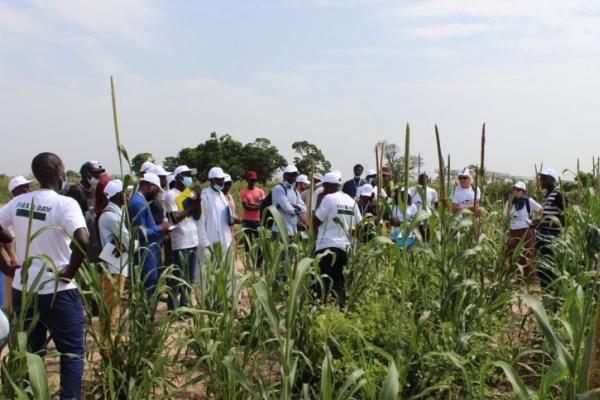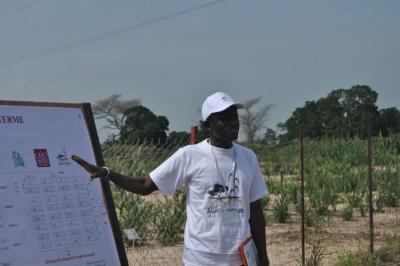Ohio State-Developed Crop Management System Improves Yields and Soil Quality for the West African Sahel

AMANDA DAVEY
A group of farmers, researchers, students, extension specialists, and NGOs gathered on October 7th for the inaugural Field Day of the Optimized Shrub System (OSS), an innovative management system developed for rainfed crops in the West African Sahel.
The OSS Field Day was held at the École Nationale Supérieure d’Agriculture in Thiès (ENSA), Senegal as part of the Ohio-State led, USAID-funded project titled, “Optimized Shrub System (OSS): An innovation for landscape regeneration and improved resilience for the peanut-basin of Senegal.”
The OSS works by increasing the natural density of two native shrubs (Gueira senegalensis and Piliostigma reticulatum) in farmers’ fields from ~250/ha up to ~1,500/ha and annual incorporation of shrub biomass into the soil instead of the current practice of coppicing the shrubs to the soil surface and burning the residue, depriving soils of much needed organic inputs. Over the span of nearly two decades of research in Senegal, SENR Soil Science Professor and Global Water Institute (GWI) Faculty Advisory Board member Dr. Richard Dick led the development of OSS in collaboration with U.S., Senegalese, and French scientists. GWI Program Manager, Amanda Davey, joined the OSS work in 2011.

